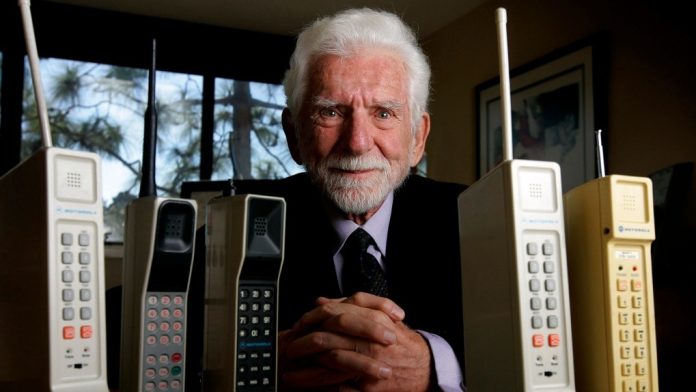On April 3, 1973, Martin Cooper stood on a sidewalk on Sixth Avenue in Manhattan with a device the size of a brick and made the first public call from a cell phone to one of the men he’d been competing with to develop the device
Joel Engel, the head of AT&T-owned Bell Labs, answered the phone and heard Cooper, a Motorola engineer at the time, say, “I’m calling you on a cell phone, but a real cell phone, a personal, handheld, portable cell phone.”
Although the ordinary consumer wouldn’t have access to cell phones for another ten years, anyone passing Cooper on the street that day could have witnessed history being made.
Since that initial call fifty years ago, a variety of thinner, speedier phones has evolved to replace Cooper’s big one. These phones are now commonplace and are changing industries, culture, and how we interact with one another and ourselves.
While the scope and influence of mobile phones may have surprised some, Cooper claimed that it was inevitable that they would one day be seen as necessities for most of humanity.
Cooper, now 94, told CNN, “I was not surprised that everyone has a cell phone. “Back then, we used to say to the myth that you would one day be given a phone number when you were born. You would perish if you didn’t answer the phone.
But, looking back on the last 50 years, Cooper mainly approves of the direction the phone has led us. He loves using his Apple Watch to measure his swimming activity and connect his hearing aids to his phone. He is an iPhone user himself (and previously a Samsung user). Cooper also stated that he thinks society as a whole will benefit from the progress of technology.
“I’m a realist. I am aware of the drawbacks of using a cell phone. Others become addicted to it. We have people walking across the street talking on their cell phones,” said Cooper. “Overall, I think the cell phone has changed humanity for the better, which will continue in the future.”


